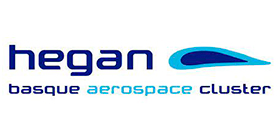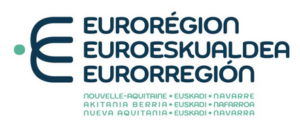PROJECT ADRIENNE
Validating additive manufacturing technologies for small satellite antennas and passives
ADRIENNE is the extension of the VALIDDANTENNESS project, which aimed to explore and validate metal additive manufacturing techniques for small satellite antennas compared to conventional machining techniques.
Key project data
- Start date: 01/2023.
- End date: 06/2024.
The aim is to continue advancing in the development of RF technology, specifically antennas and passives, i.e. communications systems, valid for additive manufacturing only.
This issue is key as not all systems can be implemented using these advanced manufacturing techniques and it is therefore necessary to change and reformulate the design approach to obtain satisfactory results.
ADRIENNE will not only focus on making additive manufacturing a viable option for the implementation of RF systems, but will also analyse different materials that allow more sustainable results.


To reduce the weight and improve the performance of antennas, additive manufacturing techniques open up new possibilities in the sector, as they allow the development of components with very complex shapes that can be manufactured without any problem. In addition, it also allows the number of fasteners such as screws or anchors to be reduced to a minimum, thus reducing the weight and logistics required to obtain perfect alignment and closure between the parts that make up a system.
Finally, it is also worth noting that additive manufacturing reduces the amount of waste, as it uses metal powder that is reusable, making this manufacturing method also more environmentally sustainable. This aspect is becoming a key point on the world scene as the increase in satellites and current developments in space mean that strong recovery, recycling and sustainability policies linked to the sector need to be established.
With all this in mind, the project aims to develop communications systems implemented through additive manufacturing that are also more sustainable and environmentally friendly.
A radiant chain for the transfer of data from small satellites will be designed, manufactured and tested. Both the design and the verification tests to be carried out are specific to the space industry and, at the end of the project, the system will be partially space-qualified.
In addition, new materials for the additive manufacturing of the antennas will be analysed.
In order to achieve the greatest possible weight reduction, the feasibility of using different types of aluminium, as well as composites, will be studied, both for the complete manufacture of the antenna and for some of its components. To this end, a structural comparison will be made of the designs developed in aluminium and in composite, simulating their dynamic response to the foreseen stresses.
Objectives
- Validate additive manufacturing technology for the development of complex RF parts (antennas and passive components) to be used in space applications (small satellites).
- To study different materials that can be used in additive manufacturing and that offer good performance from a functional and sustainable point of view.
- To test and validate the equipment developed in space conditions.
- Visibilise the use of additive manufacturing and the results of the project in the aerospace industry.
- To generate a strong consortium that creates value in the region.
Partners










Funding





